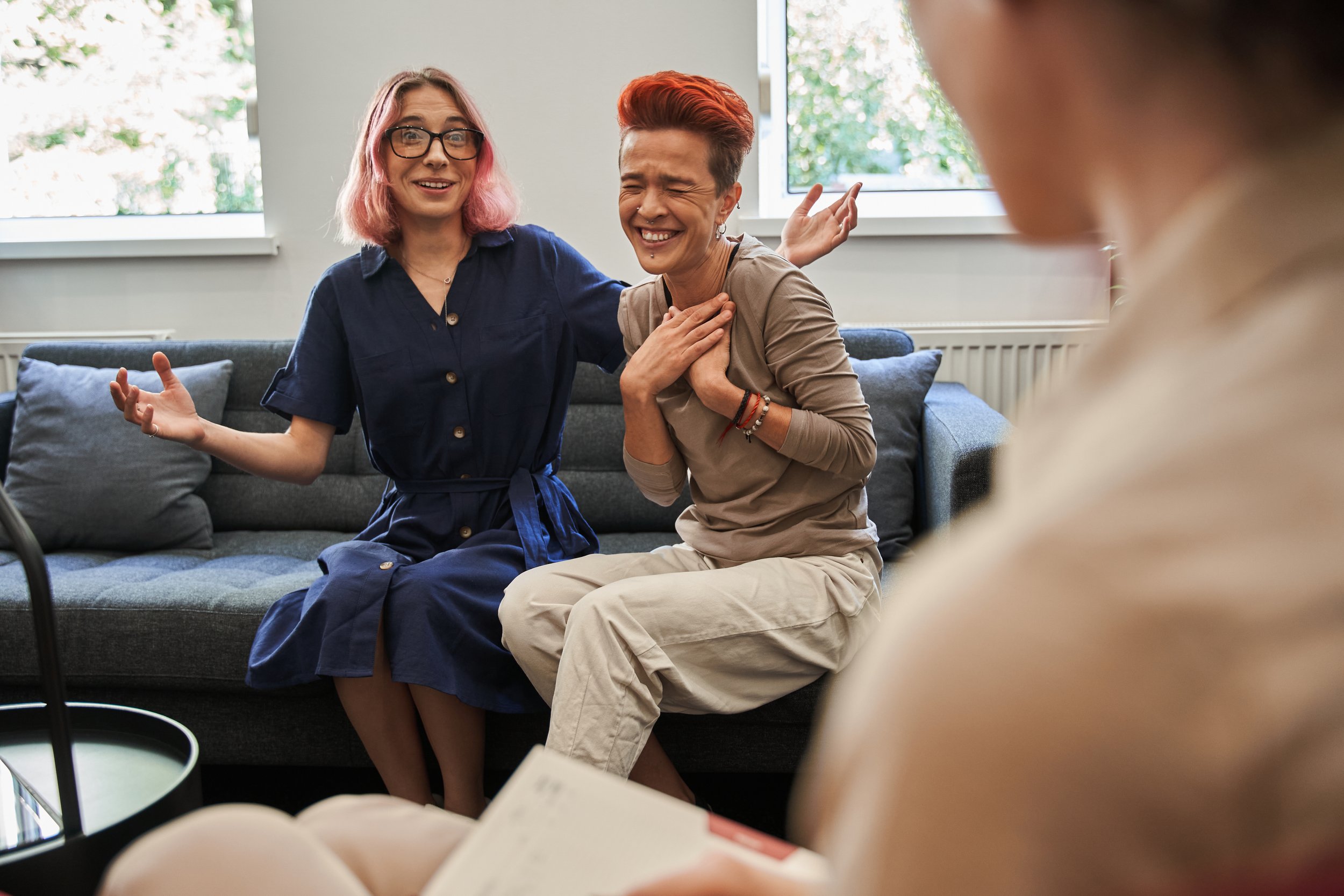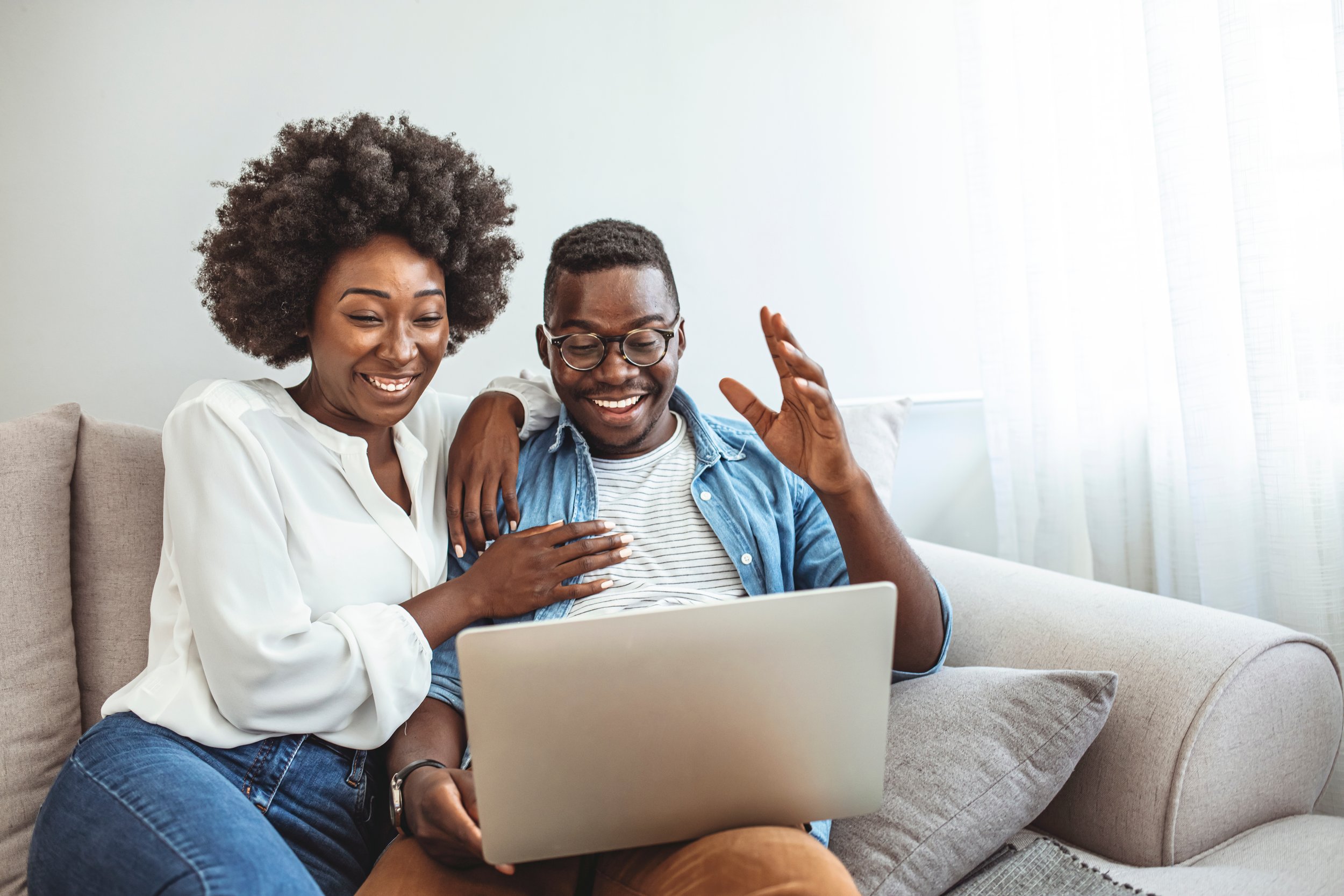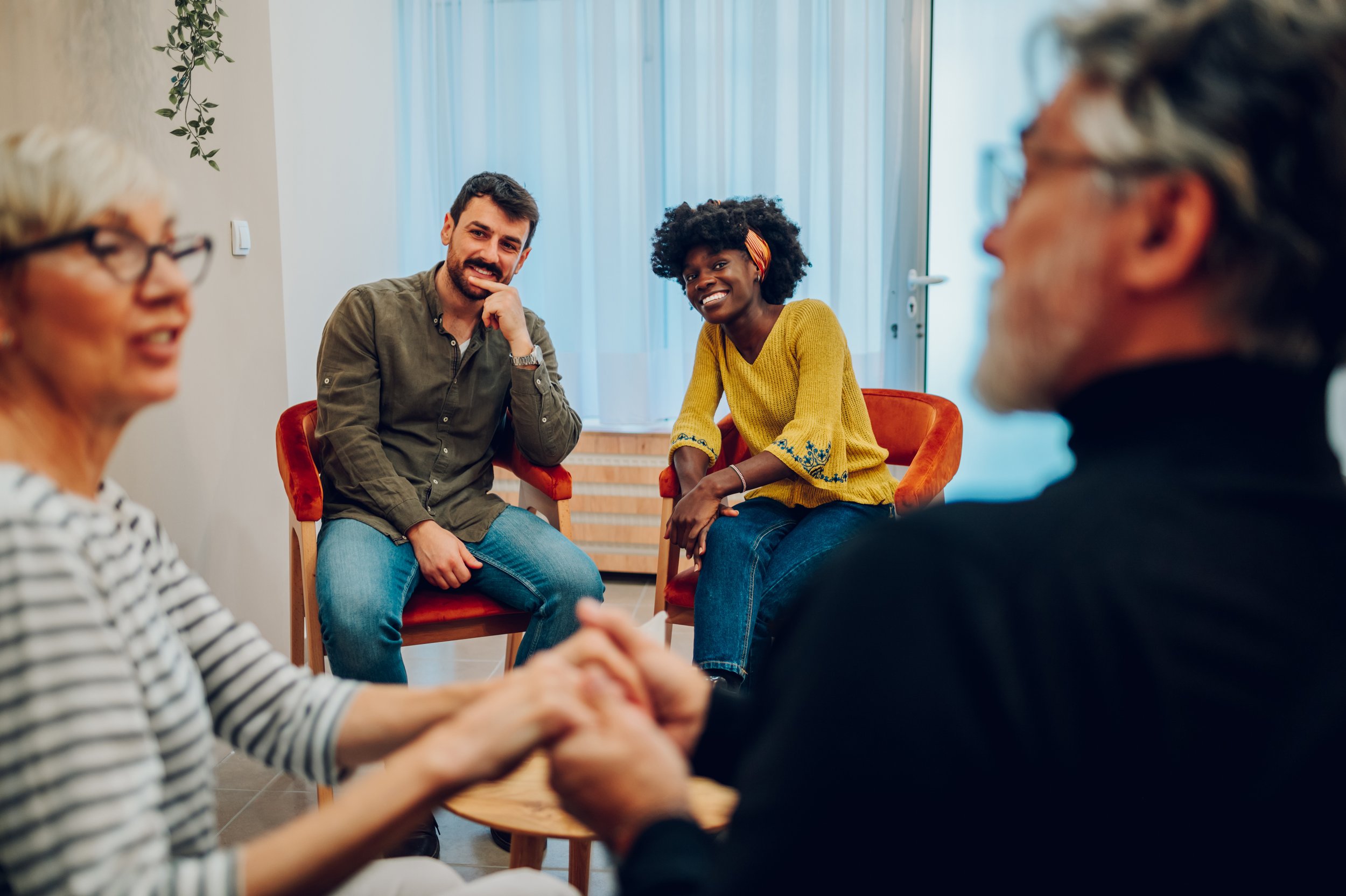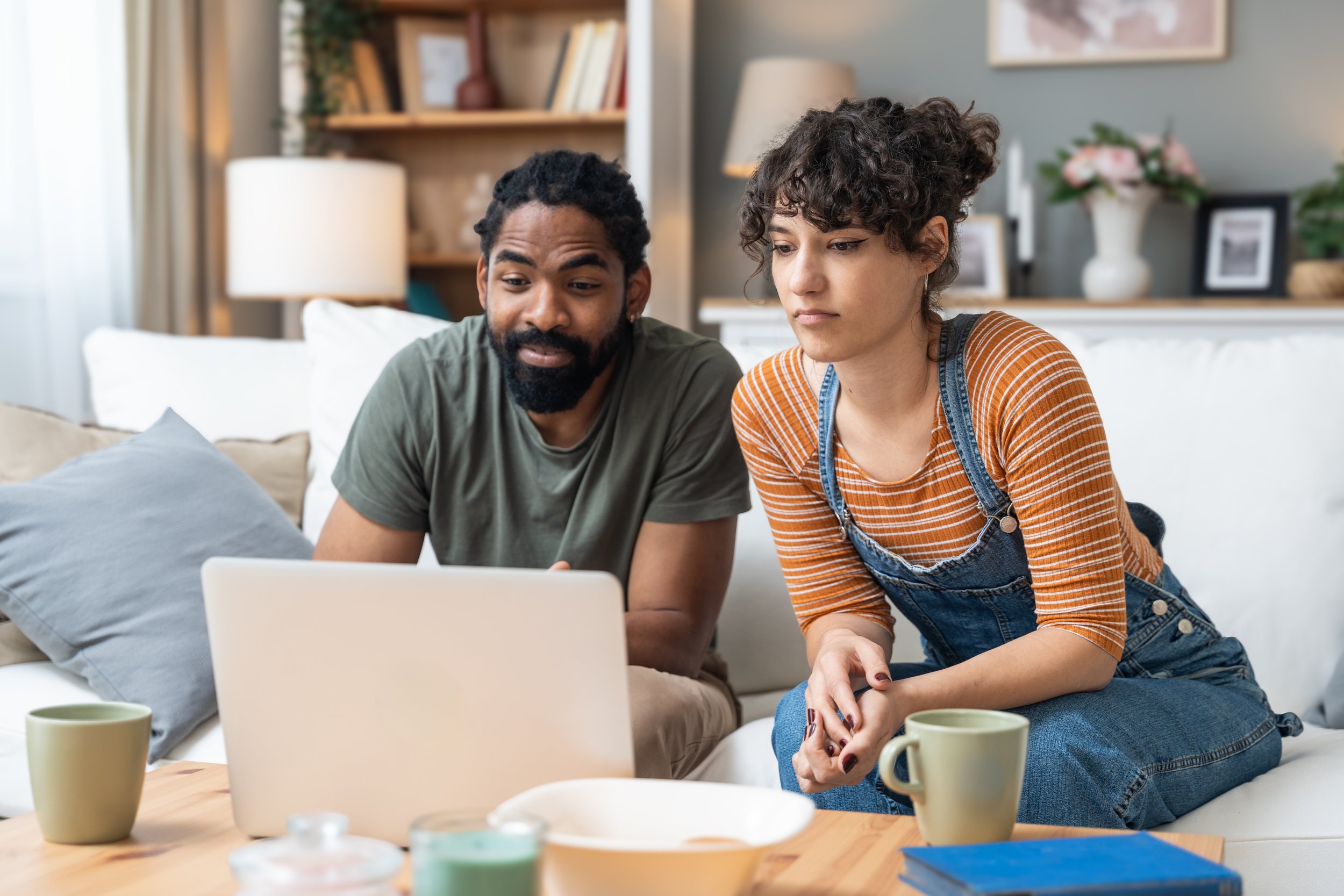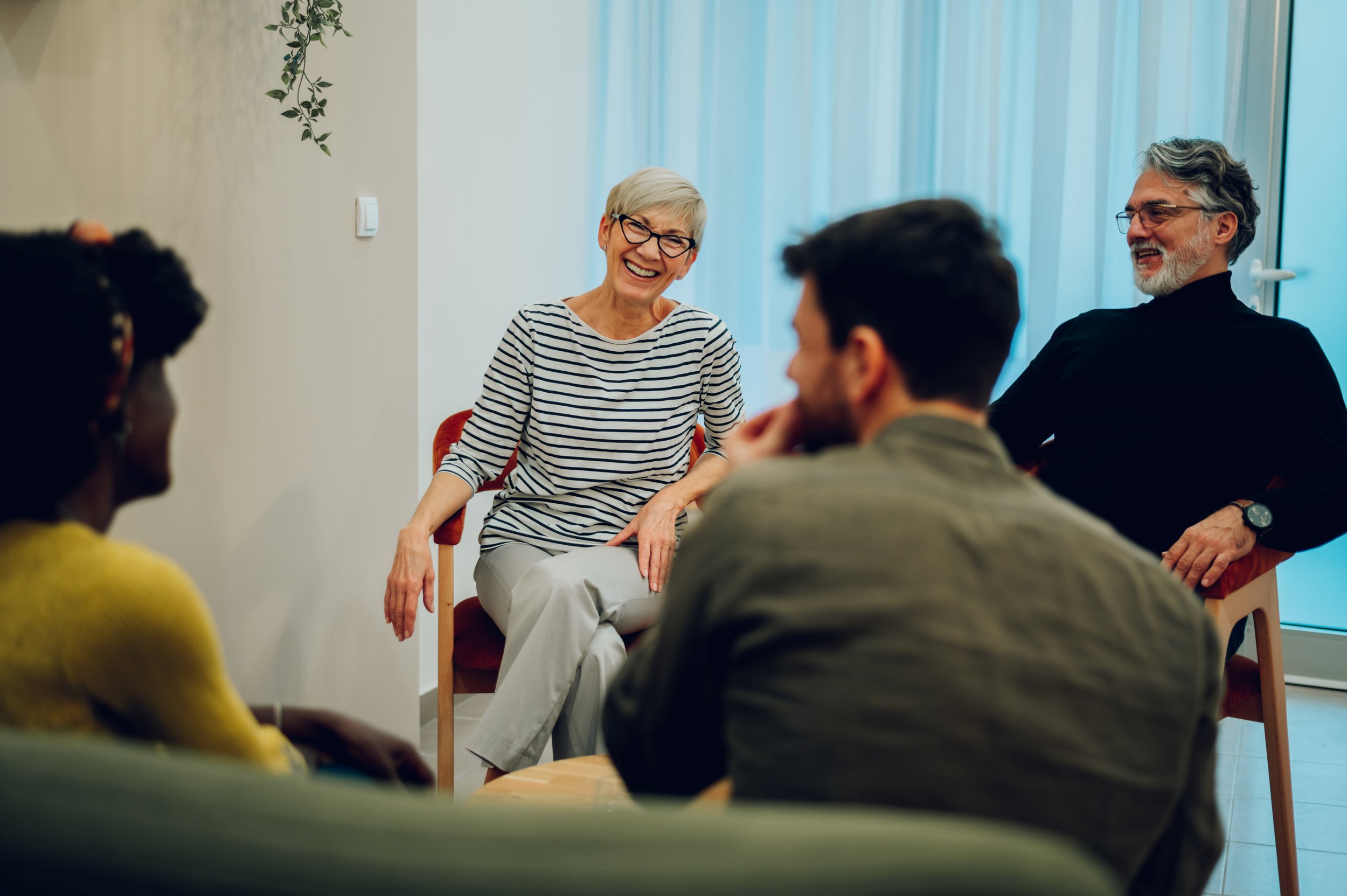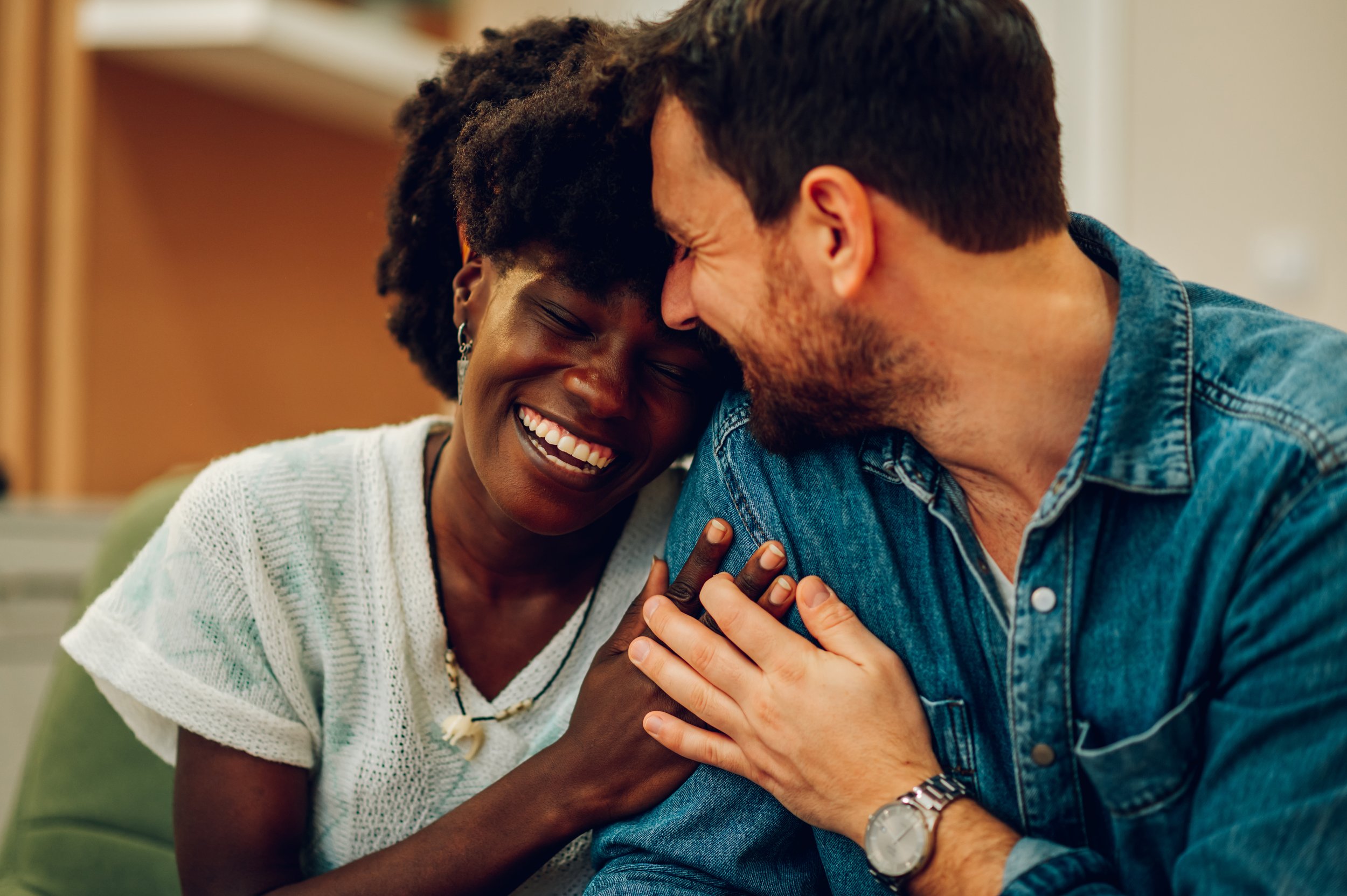
Therapy For Couples
“Successful couples need more than better communication—they need clarity, trust, and long-term solutions. I help you rebuild connection, navigate conflict, and create a relationship that truly works”
Our relationships mirror the inner work we’ve yet to do, shaping our well-being. Therapy helps you build a strong, fun, and deeply connected partnership rooted in trust, passion, and spiritual alignment.
How I Can Support You in Couples Therapy
I am deeply passionate about understanding relationships and have dedicated years to helping individuals and couples build healthy, fulfilling connections. Relationships often trigger our deepest fears, but they also hold the key to growth, healing, and deeper intimacy. My mission is to help you identify how past attachment patterns shape your present insecurities—and guide you toward breaking free from them for good.
-
Strong relationships require effective communication and the ability to navigate conflict without breaking connection. I help couples and individuals develop:
✔ Clear, confident communication skills to express needs and emotions effectively
✔ Conflict resolution strategies that prevent recurring arguments and resentment
✔ Emotional intelligence tools to handle disagreements with understanding, not reactivity
💡 Why This Matters: Many high-performing professionals struggle to balance work demands with emotional connection, leading to miscommunication and frustration in their relationships. Learning to communicate with clarity and emotional attunement is key to sustaining love and respect.
-
Betrayal can shake the foundation of any relationship, but healing is possible with the right guidance. Whether you’re rebuilding after infidelity or navigating long-standing trust issues, I provide:
✔ Betrayal recovery therapy—helping couples rebuild trust and re-establish safety
✔ Self-trust work for individuals struggling with insecurity, jealousy, or abandonment wounds
✔ Tools for honest, vulnerable communication to prevent cycles of secrecy and avoidance
💡 Why This Matters: Trust issues don’t just affect romantic relationships—they impact self-worth, friendships, and even professional dynamics. Learning to repair and rebuild trust leads to deeper, more fulfilling connections.
-
For many couples, intimacy fades under the weight of life’s responsibilities. I work with individuals and couples to:
✔ Reignite emotional and physical intimacy—even in long-term relationships
✔ Address barriers to connection such as stress, resentment, or body image struggles
✔ Explore the emotional roots of intimacy issues, creating deeper passion and closeness
💡 Why This Matters: Many high-achieving professionals struggle to be fully present in their relationships, impacting emotional and physical intimacy. Learning to prioritise connection and vulnerability can transform your relationships.
-
Navigating relationships as a queer or lesbian couple comes with its own unique emotional landscapes and societal pressures. My work is rooted in:
✔ Affirming, inclusive support for those navigating relationships, identity, and self-acceptance
✔ Guidance on overcoming external and internalised stressors that impact queer relationships
✔ Couples therapy tailored for LGBTQ+ dynamics, ensuring both partners feel heard and valued
💡 Why This Matters: Many therapy spaces still lack true inclusivity for LGBTQ+ couples, leading to misunderstandings and unhelpful advice. This space is for deep, transformational relationship work without judgment or outdated frameworks.
-
Parenting is more than just raising children—it’s about breaking generational patterns and leading with emotional intelligence. I help parents and blended families:
✔ Heal their own inner child wounds to prevent passing down unresolved patterns
✔ Navigate complex family dynamics, including co-parenting, blended families, and same-sex parenting
✔ Develop emotionally secure children through intentional communication and boundaries
💡 Why This Matters: High-stress environments and complex family structures can create emotional disconnect. When parents do their own inner work, they create healthier, more emotionally attuned relationships with their children
Questions to invite open communication
What do you think is the biggest challenge I face regarding our relationship?
•
If you could give me one advice, what would it be and why?
•
What do you love to do with me that I may not be aware of?
•
What do you think is the biggest challenge I face regarding our relationship? • If you could give me one advice, what would it be and why? • What do you love to do with me that I may not be aware of? •
Ask each other:
Therapy that suits the way you both prefer
Get personalised 1:1 couples therapy to enhance communication & strengthen your relationship.
Convenient, expert guidance to deepen connection and learn insightful techniques.
Join the group to enhance communication, share experiences, and re-connect.
A shared community, building robust, safe and wholesome relationships online.
1:1 Therapy for Couples
I help couples break unhealthy patterns, improve communication, and rebuild intimacy through a structured, personalised approach. Using therapeutic relational tools and coaching, I create a clear treatment plan with:
✔ Tailored strategies & guided reflection
✔ Homework to deepen awareness & connection
✔ Unpacking unconscious patterns shaping your relationship
If you’re ready for real change, let’s work together.
-
Online Psychotherapy & Couple’s Coaching – £120 per 50-minute session
Distance should never be a barrier to your healing. Whether you’re navigating a demanding schedule, living outside London, or simply prefer the ease of working from home—online sessions offer powerful, results-driven support, wherever you are.
✔ Private, secure, and tailored entirely to your needs
✔ Just as effective as in-person therapy—backed by research
✔ Ideal for professionals, parents, and couples ready for deep, lasting change
All you need is a quiet space, a strong internet connection—and a willingness to do the work.
£120 per 50-minute session
For those ready to break patterns and build the life they truly want, without compromise
📅 Book Your Call and start your journey today.
-
In-Person Psychotherapy & Couple’s Coaching – £120 per 50-minute session
Wimbledon, London
For those who value in-person connection, these sessions offer a calm, private space designed for depth, clarity, and transformation.
✔ Premium, face-to-face therapy in a confidential setting
✔ A peaceful, welcoming environment curated for deep emotional work
✔ Refreshments provided—just bring yourself and your truth
Step away from the noise of everyday life and into a space where powerful shifts happen.
£120 per 50-minute session
A sanctuary for healing, clarity, and personal evolution—right in the heart of Wimbledon.
📅 Book Your Call today.
Relational work focuses on how your relationship is repeating internalised cycles of trauma. It uncovers aspects of your psyche that allow deeper connection with your partner and a secure wholesome union.
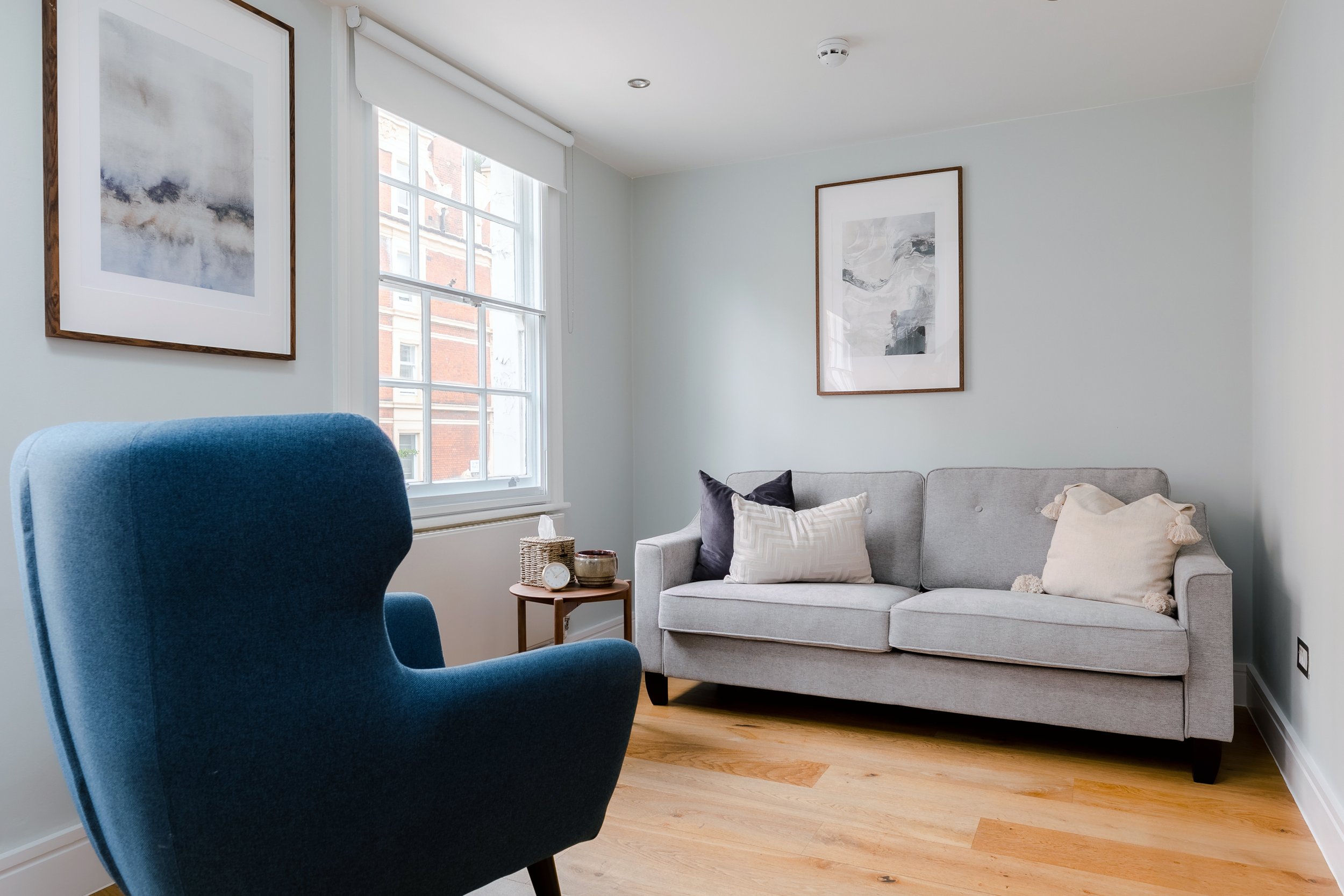
Group Therapy for Couples
Group Couples Therapy offers a unique and supportive environment where couples can work through relationship challenges alongside others. It provides the opportunity to learn from shared experiences, fostering communication, empathy, and problem-solving skills.
The method of being part of a shared safe space often creates valuable insights, practicing healthier strategies for conflict resolution, and enabling deep emotional connections. With professional guidance, couples experience enhanced positive changes, ability to handle difficult emotions in their relationships, improving overall satisfaction and strengthening their bonds.
-
For couples who prefer the convenience of Online therapy; same methodology; just a different space.
-
Situated in London, offered weekly/bi-weekly during the week. Refreshments are provided in a confidential, comfy space. Just arrive and be open for the journey to creating a wholesome relationship you'd be proud of.
Got a burning question for me?
Frequently Asked Questions
Couples 1:1 Therapy
-
Couples therapy is a type of psychotherapy that helps couples improve their relationship and communication skills. It can help couples resolve conflicts, build intimacy, and create a more satisfying relationship. It is designed to help couples resolve conflicts, improve communication, and strengthen their relationship. Helping to facilitate conversations and providing tools to help partners better understand each other’s perspectives and work through issues in a safe and neutral environment.
-
Couples need help with a variety of issues, including:
Communication problems
Conflict resolution
Infidelity or trust issues
Intimacy concerns
Financial stress
Parenting issues
Intersectionality crisis
Work-life balance
Mental health issues
Emotional distance
Differences in goals or values
Spiritual alignment
Managing Triggers
-
Couples therapy typically involves weekly or biweekly sessions. I will help identify the issues causing problems in the relationship and develop strategies for resolving them. Homework tasks and reflective exercises are usually set, and I may provide psycho-educational resources and suggestions on relevant topics to enhance the relationship.
-
Well, I thought you’d never ask! I’m an integrative couples therapist and coach. So all that means is lots of what I do stems from finding out how and why your past environments have shaped your relationship and what needs to change in the present to allow the desired future you both envisage. I’m solution-focused and can include a directive approach to reaching your goals (where the coaching bit comes in handy!) Technically, your relationship is my client, which sounds strange but handy, as it leaves me very impartial. I utilise mindfulness, somatic practices (a fancy word for connecting to your body), and, most importantly, a humanistic approach to guide you both to feel clearer, empowered, and connected at the bare minimum!
-
The length of couples therapy varies depending on the couple's needs and goals. Some couples may only need 6 weekly sessions, with the aim of doing drop-ins. While others may need longer-term therapy, I like to keep the process structured, so regular interval reviews are part of my service.
-
I ask to see each partner individually before we begin; usually, 1-2 sessions is enough; the key reasons for this:
To Gain Deeper Insight into Individual Perspectives - Seeing each partner separately allows me to understand better personal experiences, emotions, and concerns that may not surface during joint sessions. So I can build a more comprehensive view of the relationship and the individual factors contributing to issues.
To Address Personal Issues Affecting the Relationship - I want to help identify personal struggles—such as mental health concerns, past trauma, or unresolved emotional issues—that may be affecting the relationship. It can help to feel unfiltered without the complexity of your partner's presence, which can sometimes inhibit honest sharing.
To Provide a Safe Space for Sensitive Topics - Partners may feel uncomfortable or hesitant to discuss specific issues—such as resentment, feelings of guilt, or sensitive past events—in front of the other. Individual sessions provide a safer environment for sharing these concerns, which can be addressed more effectively in joint sessions.
To Assess Power Imbalances or Abuse - As difficult as it is to address, I sometimes see power imbalances, controlling, or abusive behaviours; the individual sessions can help reveal these dynamics in a safer, private setting. This is especially crucial in cases where one partner may feel intimidated or unable to speak freely in joint sessions or when one isn’t aware of their toxic traits.
To Build Trust with Each Partner - It helps strengthen the therapeutic relationship between me and each of you. Creating a sense of trust and openness.
To Respect Privacy Boundaries - Fostering open communication: I’m not a gatekeeper for secrets! If it affects the other person, honesty is the best policy!
-
💻 Online & 🏠 In-Person Sessions (Wimbledon, London)
Couples: £120 per 50-minute session
Individuals: £100 per 50-minute session.
Couples Therapy Packages 💞🧠
💻 Online or In-Person:
• 4-Session Package: £480 (£120 per session)
• 6-Session Package: £690 (£115 per session)
• 10-Session Package: £1,080 (£108 per session)
-
Let’s have a 20-minute chat first over Zoom. It’s important we both feel confident about beginning to work together. Once we all agree, I’ll let you know the next steps.
-
That depends. It can be an insightful, enriching process, but let's chat, and I can offer a little more direction.
Couples Group Therapy
-
Couples group therapy is a form of therapy in which multiple couples meet with a therapist to work on their relationships. It combines the benefits of traditional couples therapy with the unique dynamics of group therapy. Group therapy, specifically support groups, works as a way to build positive peer networks and practice healthy communication skills in a safe space.
I will assess each couple before unifying the group, and once established, adding new members will be subject to evaluating what’s best for the group dynamic.
-
Normalisation: Seeing other couples struggle with similar issues helps you realise you're not alone.
Diverse perspectives: Gaining insights from other couples and the therapist offers a wider range of perspectives on your relationship challenges.
Skill-building: Learn and practice communication, conflict resolution, and intimacy-building skills in a safe and supportive environment.
Increased empathy: Witnessing other couples' vulnerabilities can foster empathy and understanding within your own relationship.
Cost-effective: Group therapy is often more affordable than individual couples therapy.
Experiential Learning: positive motivation to witness others' improvements.
-
Group dynamic: The presence of other couples adds a unique dimension, offering opportunities for shared learning and support.
Witnessing and relating: Observing other couples' interactions and challenges can provide valuable insights into your own relationship patterns.
Less individual focus: While you'll still receive personalised attention, my focus is divided among the couples in the group.
Skill-building in action: The group becomes a safe space to practice communication skills, conflict resolution techniques, and intimacy-building exercises in front of others, receiving immediate feedback and support.
Vicarious learning: Witnessing other couples navigate challenges and try new approaches can be just as instructive as your own direct experience.
Power of Collective wisdom: Group members often share valuable resources, coping strategies, and book recommendations that have helped them.
Mutual support: The group becomes a source of encouragement and understanding, fostering a sense of community and shared goals
-
Communication problems: Improving communication skills, active listening, and expressing needs effectively.
Conflict resolution: Learning healthy ways to manage conflict and disagreements.
Intimacy and connection: Rebuilding emotional and physical intimacy, addressing sexual concerns.
Infidelity and trust: Rebuilding trust after infidelity or other breaches of trust.
Life transitions: Navigating significant life changes together, such as parenting, career shifts, or health matters.
Spontaneity/Adventure: Making bold steps often promotes a stretch outside comfort zones which allows more spontaneity and a sense of adventure.
-
Group therapy can provide several benefits, including:
A sense of community and belonging: “You’re Not Alone”
Social connection: Couples group therapy can help couples expand their social circle and build relationships with others who understand their challenges.
This can combat isolation and create a support network outside of therapy
Cost-effective: Group therapy often costs less per session than individual couples therapy, making it a more accessible option for some couples.
Real-time feedback: The group becomes a social microcosm, allowing you to see how you interact with others and receive feedback in a safe environment.
The opportunity to learn from and support others
Reduced shame: In a supportive group environment, couples can feel more comfortable discussing sensitive issues they might hesitate to share in individual therapy.
Increased self-awareness and understanding
Improved communication and social skills
Reduced symptoms of mental health conditions
You can identify and address unhelpful relationship patterns contributing to your challenges.
Witnessing other group members overcome challenges and make progress inspires hope and motivates you in your journey.
-
Confidentiality: What's shared in the group stays in the group.
Respect: Treat all group members with respect and kindness.
Active participation: Be willing to share your experiences and engage in the process.
No advice-giving: Focus on sharing your experiences and perspectives rather than giving advice to others.
-
Not on my watch! I’m a stickler for justice and empowerment, so bullying or anything that doesn’t allow inclusion is a big No for me! Group therapy has rules to ensure everyone feels respected and safe. My job is to help everyone be kind, respectful and understanding of each other.
-
Some common topics discussed in group therapy include:
Relationships
Communication
Intimacy Issues
Conflict resolution
Grief and loss
Infidelity & Trust issues
Anxiety and depression
Addictions
Emotional Attunement
Mood Dysregulation
Pregnancy
Parenting
-
Check-ins from each couple
In-depth discussion of a topic or issue
Interactive exercises or activities
Processing and reflection
A huge warm welcome to start. Time to get comfy and settle in; I’ll share some prompt questions to introduce yourself and share a little about your reasons for seeking therapy. I will then lead the group to discuss topics relevant to everyone's needs and address boundaries, our agreement and the agenda for the day.
-
Be open and honest: Come prepared to share your challenges and goals for therapy.
Listen actively: Pay attention to what other couples are sharing and how it resonates with your own experiences.
Be patient: Feeling comfortable in the group and seeing progress may take time.
-
Yes, group therapy is confidential. The other group members and I keep everything that is said confidential. This will be a mandatory requirement we all contract to before we begin. The only caveat is if there are safety concerns.
-
Couples group therapy can complement individual treatment but doesn't necessarily replace it. If you're dealing with personal mental health concerns, individual treatment may be necessary in addition to couples group therapy.
-
It's normal for one partner to be more hesitant than the other. Encourage open communication and discuss the potential benefits of group therapy. Consider attending an individual session with me to address any concerns.
-
The Groups last for 90-minutes and run from 6-20 weeks, either weekly or bi-weekly (unless there’s a holiday, which is discussed beforehand):
Short-term groups: Some groups are designed to be short-term, lasting for 6-8 weeks. These groups often focus on a specific skill or issue, such as communication or conflict resolution.
Standard groups: Many couples groups run for 12-20 sessions, meeting weekly or bi-weekly. This allows for deeper exploration of issues and more time to practice new skills.
Long-term groups: Some groups may continue for several months or even years. These groups often provide ongoing support and guidance as couples navigate various life stages and challenges.
-
Each 90-minute session is £80
-
Each group has four couples. If a group drops below 4, we will continue, and if appropriate for the group dynamic, new members will be added.
-
Typically, members opt to pay in advance, all in one go. If you’d prefer to split it, using the Trafft booking system, you can pay for the first four sessions. The remainder is due four weeks in advance of each month or of the end date. 72 hours notice is required if you can’t attend a session.
-
Absolutely, Groups for LGBTQIA are purposefully positioned; equally, there are black and mixed heritage couples groups, spiritual community groups with an interest in soul, mind, and body alignment, and more.
-
Couples group therapy can be beneficial for couples who are:
Motivated to work on their relationship
Open to feedback and learning from others
Comfortable sharing personal experiences in a group setting
Group therapy might be a good fit if you're open to sharing with others and learning from their experiences. It's always a good idea to talk to me first to see if it's the most appropriate choice.



